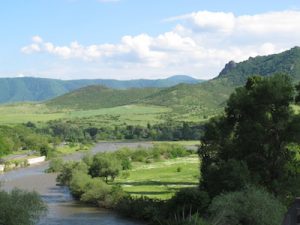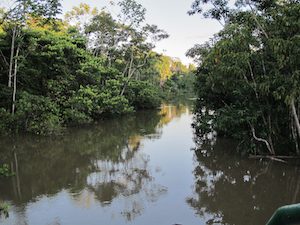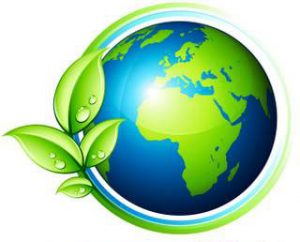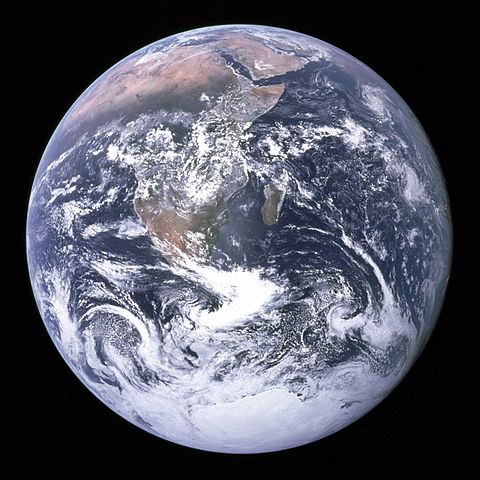Earth Day 2020 and Lessons from COVID-19
 A Personal Opinion
A Personal Opinion
By: Allison Kozicharow; Edited by Jessie Crowdy
How we treat ourselves, our animals and our planet is a matter of life or death. Earth Day 2020 reminds us to address climate change in terms of One Health — the intersection of human, animal and environmental health. The COVID-19 pandemic is teaching us that we must be responsible for each other — everywhere.
 COVID-19 has generated an outpouring of gratitude to our healthcare workers, an urge to help our neighbors, a concern for our older populations and an increase in our reaching out to friends and loved ones. Is a deepening of human compassion during the COVID-19 crisis teaching us lasting lessons?
COVID-19 has generated an outpouring of gratitude to our healthcare workers, an urge to help our neighbors, a concern for our older populations and an increase in our reaching out to friends and loved ones. Is a deepening of human compassion during the COVID-19 crisis teaching us lasting lessons?
The pandemic raises our social consciousness as we see stark economic, racial and health inequality. We see TV footage of thousands of people in line for food. We see the effects of no paycheck, no healthcare insurance and too much isolation. Our hearts are struck by images of death, but also by images of hope as our healthcare force and essential workers in food and delivery sectors carry on.
We in the United States are being forced to realize that our healthcare systems have been woefully inadequate to protect us from COVID-19. But just consider for a moment the situation of billions living in poverty, trying to survive as refugees and born into underserved communities in our own country and all over the world. Even before the virus, these neglected populations have been suffering and dying.
 Being threatened by a virus seems more immediate than the existential danger posed by climate change. Yet science tells us that climate change impacts our health through pollution, loss of habitat, population migration, and an increase in hurricanes, wildfires and floods and much more.
Being threatened by a virus seems more immediate than the existential danger posed by climate change. Yet science tells us that climate change impacts our health through pollution, loss of habitat, population migration, and an increase in hurricanes, wildfires and floods and much more.
As scientists race to find a COVID-19 vaccine, scientific research is exploring the link between viruses, climate change and the environment. These connections are being discussed and investigated in many arenas such as at Harvard, Yale, New York Times and World Economic Forum.
Dr. Aaron Bernstein, the director of Harvard C-Change at the Harvard T.H. Chan School of Public Health, said, “Many of the root causes of climate change also increase the risk of pandemics. Deforestation, which occurs mostly for agricultural purposes, is the largest cause of habitat loss worldwide. Loss of habitat forces animals to migrate and potentially contact other animals or people and share germs … Climate change has already made conditions more favorable to the spread of some infectious diseases, including Lyme disease, waterborne diseases and mosquito-borne diseases such as malaria and dengue fever.”
 Numerous everyday activities we have taken for granted are denied us for now. We are forced to find new, creative ways to work, teach, learn and spend our time. We are suddenly appreciating the little things. My daughter who lives in England sent me a photo of a cat stretched out near her doorstep. “Mom!” she wrote, “I touched a living thing for the first time in weeks! And before you ask, I washed my hands afterwards.”
Numerous everyday activities we have taken for granted are denied us for now. We are forced to find new, creative ways to work, teach, learn and spend our time. We are suddenly appreciating the little things. My daughter who lives in England sent me a photo of a cat stretched out near her doorstep. “Mom!” she wrote, “I touched a living thing for the first time in weeks! And before you ask, I washed my hands afterwards.”
So, let’s act like global citizens. Happy Earth Day.
Allison Kozicharow is a WiRED International board member and manages WiRED’s website content.


